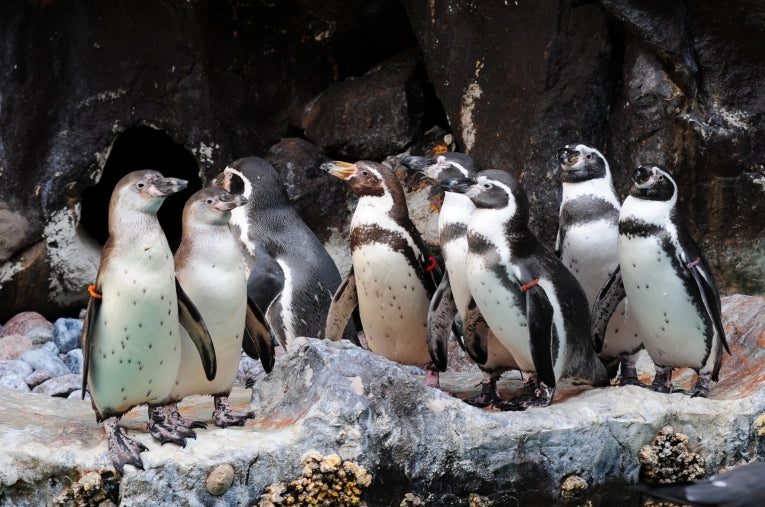Anyone who's ever visited a penguin exhibit at the zoo probably knows the cute little sea birds have a distinct, shall we say pungent, smell to them. But new research indicates that they while they may not smell good, they smell very well.
Scientists at the University of Chicago and the Chicago Zoological Society report that penguins use a highly-developed sense of smell to identify their kin, thus avoiding interbreeding with relatives.
"Smell is likely the primary mechanism for kin recognition to avoid inbreeding within the colony," said Heather Coffin, lead author of the paper.
Published in the online journal, PLoS ONE on Sept. 21, the research was conducted on a population of captive Humboldt Penguins (Spheniscus humboldti) at Chicago's Brookfield Zoo.
"The work...is truly groundbreaking in that it shows for the first time ever...how the olfactory sense of captive penguins is both informative and functional in a behaviorally critical context: namely the recognition of friends from foes in general, and relatives from non-relatives in particular," said bird social recognition specialist, Mark E. Hauber, professor of psychology at Hunter College.
Penguins are ideal subjects for this type of research, because they form monogamous pairs, and live in colonies consisting of thousands of individuals, say researchers. Previous research has shown that other sea birds use the sense of smell to guide them while foraging for food, and to find their home territory. While some studies have suggested that other birds may rely on sight and sound to identify each other, the present study is the first to show that scent helps penguins identify and avoid mating with relatives.
The research also identified the likely source of individual birds' personalized fragrance.
"What I found particularly notable about the study was that the authors identified the oil secreted from the penguins' preen gland, which is rubbed on the feathers to make them water repellent, as the odor source used in recognition," said Bryan D. Neff, professor and associate chair of biology, University of Western Ontario. "Oils are used in kin recognition by species of other animals, most notably a variety of insect species, including bees and wasps, which when considered with the penguin data provide a wonderful example of convergent evolution."
Top Image Credit: © Jim Schulz/Chicago Zoological Society










